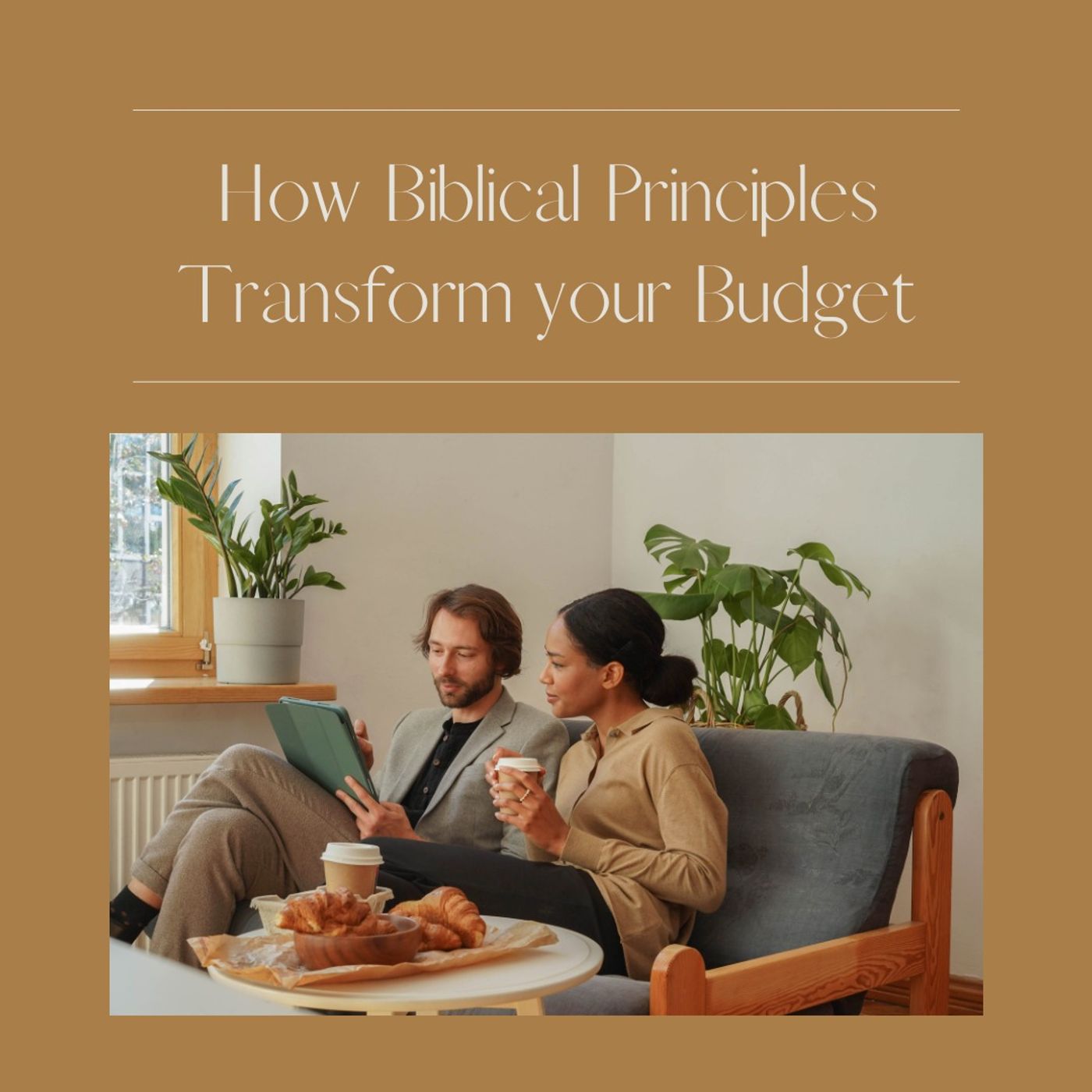How Biblical Principles Transform Your Budget
- Author
- FaithFi: Faith & Finance
- Published
- Thu 15 May 2025
- Episode Link
- https://www.faithfi.com/
Proverbs 4:26 reminds us, “Give careful thought to the paths for your feet and be steadfast in all your ways.”
That’s a call to intentional living—choosing wisdom over impulse, especially in how we manage our money. We often emphasize that budgeting isn’t just about numbers—it’s about aligning your resources with God’s purposes.
Matt Bell, a trusted voice in biblical finance, recently wrote about the contrast between cultural and Christian approaches to budgeting. He notes that culture gives your money a script:
“Make $80,000 a year. Then move into this neighborhood, drive that car, wear these clothes, eat in these restaurants, and take these vacations. Then you can give.”
In this model, spending comes first and usually leads to debt. If we're lucky, we might save or give with what’s left. The result? Financial stress, shrinking savings, and a fading sense of contentment.
Budgeting as a Sacred Trust
But what if budgeting isn’t just a spending plan—it’s a sacred trust?
Deuteronomy 8:18 says, “You shall remember the Lord your God, for it is He who gives you power to get wealth.”
Your income is a gift and a responsibility. Imagine God saying:
“I’m entrusting you with $80,000 this year. Use it to reflect My love—meet needs, fund ministry, invest in My Kingdom. Save wisely. Enjoy what I’ve provided.”
This echoes 1 Timothy 6:17, which reminds us that God “richly provides us with everything to enjoy.” With a biblical framework, our financial decisions flip the cultural script:
- Give first
- Then save and invest
- Then spend wisely
- And use debt sparingly
Paul David Tripp puts it this way:
“God calls us to stop starting with ourselves and hoping there’s money left over for him. Instead, the call is to willingly and joyfully accept that our money’s primary purpose is to fund a kingdom of generosity… and then trust that God will provide what we need.”
Jesus warned in Matthew 7:26–27 that anyone who builds their life on shifting sand—hearing His words but not doing them—will find their house collapsing in the storm. A budget based on biblical principles isn’t just practical—it’s foundational. It anchors our financial lives to the truth of God’s Word.
A Partner for Kingdom Stewardship
If you're ready to build your finances on that foundation, it helps to partner with others who share your values. That’s why we’re grateful for Christian Community Credit Union (CCCU).
More than a bank, CCCU is a financial institution with a Kingdom mission. They offer everything you’d expect—checking, savings, loans, mortgages—but they also invest your deposits in ministries that serve the Gospel worldwide. Every dollar becomes a tool for transformation.
If you’re seeking a trusted financial partner that aligns with your faith and fuels your impact, learn more at JoinChristianCommunity.com.
Budgeting isn’t about restriction—it’s about worship. It’s about saying, “Lord, everything I have is from You and for You.” When we carefully consider our financial paths, we begin to experience the freedom, peace, and joy of Kingdom stewardship.
On Today’s Program, Rob Answers Listener Questions:
- I will be full retirement age in August. I'm still working, so my Social Security will be a surplus that I want to put toward my home. I still owe $82,000 on it, but I also know it needs many repairs. Does it make more sense to put this extra cash flow toward repairs, paying down the mortgage, or a little bit of both?
- What's the difference between getting a debt consolidation loan or working with a debt counselor?
- I just wanted general information about universal index life insurance. It seems too good to be true. I've heard that you put money in, and it always increases, but you never lose money out of there, like in the case with stocks.
- I have a colleague with $12,000 in student debt. He wants to pay $1,000 down and the rest over time, but I think he should pay it off completely now. What's the best method for him to save money and pay off the debt quickly?
Resources Mentioned:
- Faithful Steward: FaithFi’s New Quarterly Magazine (Become a FaithFi Partner)
- Christian Community Credit Union (CCCU)
- Christian Credit Counselors
- Wisdom Over Wealth: 12 Lessons from Ecclesiastes on Money (Pre-Order)
- Look At The Sparrows: A 21-Day Devotional on Financial Fear and Anxiety
- Rich Toward God: A Study on the Parable of the Rich Fool
- Find a Certified Kingdom Advisor (CKA) or Certified Christian Financial Counselor (CertCFC)
- FaithFi App
Remember, you can call in to ask your questions most days at (800) 525-7000. Faith & Finance is also available on the Moody Radio Network and American Family Radio. Visit our website at FaithFi.com where you can join the FaithFi Community and give as we expand our outreach.
